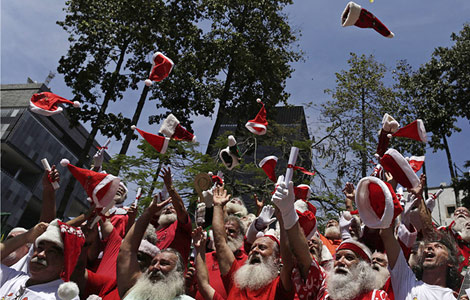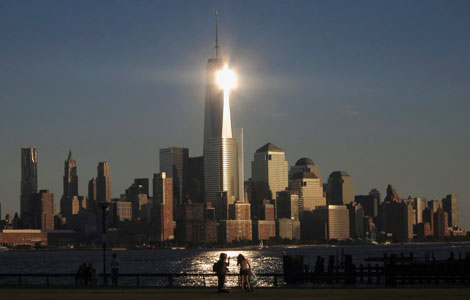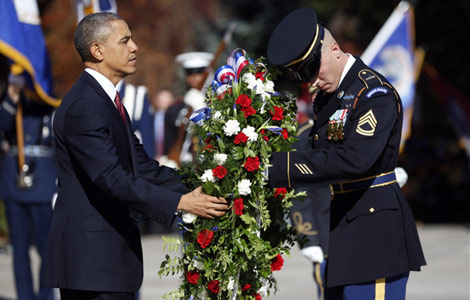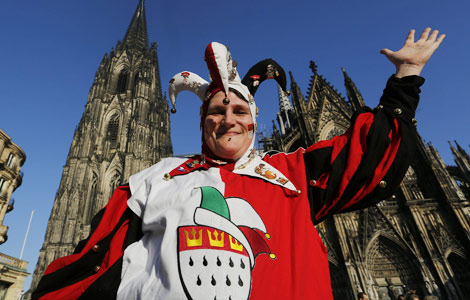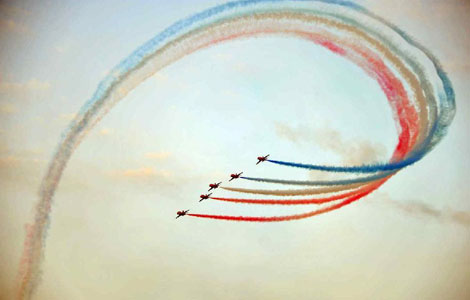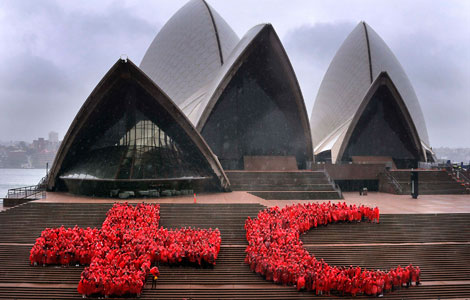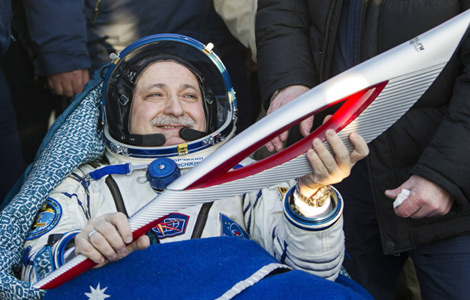

Since economic, political and strategic relations between Europe and China are not commensurate with their mutual appreciation and reciprocal attraction, a formidable potential for synergy between the two still awaits to be unleashed.
The new French president, Francois Hollande, obviously faces daunting challenges on the economic front at home and in the eurozone, but the nature of the relations he will forge with China, the 21st century's most important factor of change, will also define his presidency.
At a time when the distribution of power is shifting rapidly - when Nicolas Sarkozy became French president five years ago, France's GDP was 73 percent of China's; it will be 33 percent in 2012 - leaders have to question their assumptions and re-evaluate their priorities.
Hollande can help start a new chapter in Sino-French relations, contribute to the deepening of links between Brussels and Beijing and take the synergy between the two to another level.
Hollande, who does not share his predecessor's reverence for the United States, is in a position to have a more independent policy toward China, and if the White House has certainly gained a partner in its quest for economic growth, it cannot view Paris any more as an acquiescent and unconditional ally. At the coming 25th NATO Summit in Chicago which will focus on the alliance's commitment to Afghanistan, Hollande will announce the withdrawal of French troops from the Central Asian country before the end of the year.
To use the words of the former French foreign minister Hubert Vdrine, Hollande considers France and the US as "amis, allies, mais pas aligns" - that is friends, allies, but not aligned.
During his long campaign the socialist candidate underlined the importance of stable relations between France and China - in contrast with the fluctuations of the Sarkozy era - but also, in reference to the 27 billion euro ($34.3 billion) trade deficit with China in 2011, called for more balanced economic relations between the two countries.
Just a few hours after his victory Hollande received Kong Quan, the Chinese ambassador to France, an encounter which followed a conversation with Charles Rivkin, the top American diplomat in Paris. After a phone conversation with German Chancellor Angela Merkel on the day of his election, the series of exchanges composed a highly relevant sequence in a century which will be largely characterized by the interaction between China, Europe and the US. Besides, by choosing a China expert, Paul Jean-Ortiz, as his top diplomatic advisor three days after his victory, Hollande signaled that he put in place a team especially in tune with Chinese dynamics.
In his discussion with the Chinese envoy, Hollande vowed to further Sino-French cooperation, asked for the two countries to strengthen collaboration in the G20 and stressed the necessity to push forward economic links. Clearly, there is considerable space for improvement: Sino-French trade represented in 2011 only 40 percent of Sino-German trade whose amount reached 144 billion euros a third of total EU-China trade.
A renewed bilateral relationship can certainly contribute to enlarging the horizon of Sino-European relations. Paris can act as a catalyst for a more autonomous EU external policy toward Beijing. It is becoming urgent for European policymakers to design mechanisms in order to attract Chinese investment to Europe China will invest abroad more than $1 trillion in the coming decade; they should grant China market economy status - which, in any case, will be accorded to Beijing under WTO rules in December 2016; lift an inopportune and counterproductive arms embargo; closely consult China on security issues; and work on ambitious Sino-European cooperation in Africa and Central Asia.
The 2012 French presidential election offers at least two obvious lessons. First, Hollande has systematically proved wrong those who underestimated him; and second, his victory marks the return of politics. And in the midst of inevitable moments of turbulence, it is the political determination to put Sino-French relations into a strategic and long-term perspective which will prevail.
In his congratulatory message to the new French leader, Hu Jintao mentioned "the long-time friendship and cooperation between China and France which is significant in safeguarding and promoting global peace, stability and development".
In 1964 following the decision of Charles de Gaulle, France was the first among the major Western countries to establish diplomatic relations with Beijing at the ambassadorial level, and under Hollande's presidency, Paris and Beijing will celebrate the 50th anniversary of this historical moment.
On Jan 31, 1964, de Gaulle concluded a press conference at the Elyse Palace with a remark on what he called the "affinities" between France and China. These cultural and historical "affinities" have to be re-activated to serve as the fulcrum of a new joint global ambition.
The author is director of the Academia Sinica Europaea at China Europe International Business School, and founder of the Euro-China Forum.
